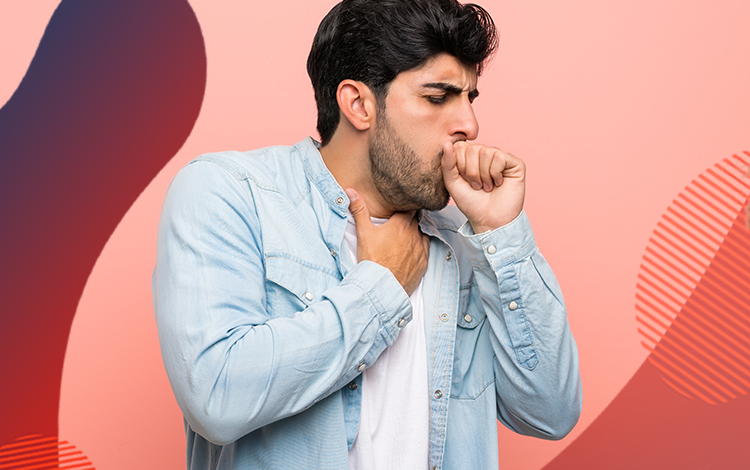
Bronchitis and Cough
You should be seen by a Fast Pace Health provider if you have the following symptoms:
- A fever higher than 100.4°F (38°C)
- A cough that lasts longer than 10 days
- Chest pain when you cough, trouble to breathe or coughing up blood
- A barking cough that makes it hard to talk
- A cough and weight loss that you cannot explain
What are the Symptoms of Bronchitis?
The most common symptoms of bronchitis are:
- A nagging cough that can last up to a few weeks
- Coughing up mucus that is clear, yellow, or green
Coughing, breathing issues and chest discomfort can ruin anyone’s week. All of these symptoms plus fever, chills, and fatigue can point directly to acute bronchitis. Bronchitis is a respiratory infection that causes the mucus membranes in the lungs to become inflamed and irritated. As the membranes swell they can cause tiny airways in your lungs to narrow, making it difficult to breath and resulting in coughing spells.
It happens when the tubes that carry air into the lungs, called the “bronchi,” get infected and irritated.
Usually, bronchitis happens when a person gets a cold or the flu. The viruses that cause the cold or flu infect the bronchi and irritate them.
Bronchitis can also happen when a person gets an infection called “whooping cough,” but this is not as common. Whooping cough is caused by bacteria that can infect the bronchi. Most people get vaccines that prevent whooping cough, but the vaccine doesn’t always work. Sometimes, people still get an infection.
In most cases, a virus is responsible for acute bronchitis, but the disease can be propagated by pathogenic bacteria as well. If you do begin to have a productive, hacking cough along with a fever, fatigue, chills and breathing issues then you can relax in knowing that Fast Pace Health — Urgent Care is right around the corner in your own community.
How is bronchitis treated?
Bronchitis is not usually treated with antibiotic medicines. That’s because bronchitis is usually caused by a virus, and antibiotics kill bacteria—not viruses.
To feel better, you can treat your cold and flu symptoms. Different treatments you can try include:
- Taking a pain-relieving medicine
- Taking over-the-counter cough and cold medicines
- Breathing in warm, moist air, such as in the shower or from a humidifier
Your Fast Pace Health provider may choose to prescribe you antibiotics, steroids, and/or medication for cough depending on your symptoms.
Is there a test for Bronchitis?
People do not usually need a test, but your Fast Pace Health provider might do a test, such as a chest X-ray if the cause of your cough isn’t clear. People with bronchitis do not usually get a fever.
How can I keep from getting bronchitis again?
You can reduce your chance of getting bronchitis again by keeping the germs that cause bronchitis out of your body. One of the best ways to do this is to wash your hands often with soap and water. If there is no sink nearby, you can use a hand gel with alcohol in it to clean your hands.
How can I keep from spreading my germs?
In addition to washing your hands often, you should cover your mouth with your elbow when you sneeze or cough. Using your elbow keeps you from getting germs on your hands. If you use a tissue, throw the tissue away and wash your hands.
Related Resources


